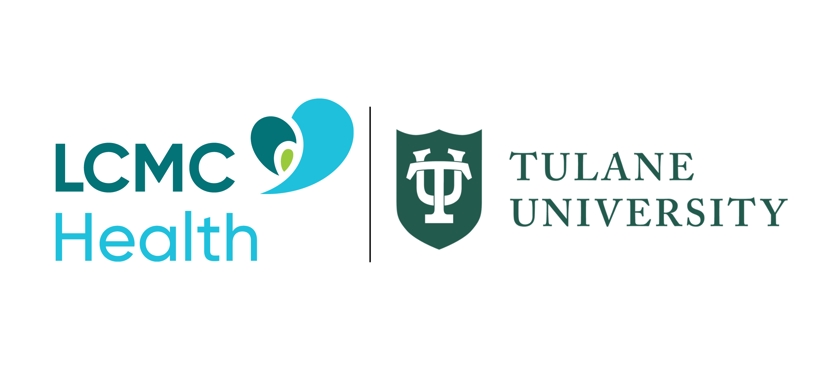Everything you need to know about colorectal cancer
- Category: Cancer Care
- Posted on:

Let’s start with some good news: colorectal cancer diagnoses and mortality rates are on the decline. That’s something to celebrate, y’all!
However, the story isn’t so simple. Despite overall numbers going down, colorectal cancer in younger adults has spiked in recent years. While most cases still occur in older patients, there has been about a 51% increase in colorectal among those younger than 50. The increase has been so dramatic that many healthcare providers are now urging younger patients to start screening earlier.
To make matters worse for us NOLA folk, Louisiana has one of the highest colorectal cancer diagnosis rates and the 4th highest death rate in the country. While the exact reasons for this aren’t known, certain risk factors that are strongly linked to the disease are also part of our southern culture, including not-so-nutritious foods, obesity, smoking, and alcohol consumption.
Between Louisiana’s case numbers and the rise among younger adults, colorectal cancer is still a top concern around here. But the truth is that most cases of colorectal cancer are preventable and curable, if detected early through regular screenings and health check-ups.
That’s why this March (aka, Colorectal Cancer Awareness Month) we’re on a mission to spread the word about the importance of screenings and knowing the symptoms to look out for. Here’s everything you need to know.

What is colorectal cancer?
Colorectal cancer—also known as colon cancer or rectal cancer—occurs when normal cells mutate and start growing out of control. These out-of-control cells can create polyps (aka, clumps of tissue) that form in the colon or rectum’s inner lining. Over time, these polyps can become cancerous if not removed.
Should I be concerned?
Maybe. Because of colorectal cancer’s prevalence, especially here in Louisiana, it’s smart for all adults to know the risk factors and warning signs, and to get screened regularly. However, certain factors can put people at higher risk.
Though colorectal cancer in younger folks is on the rise, the risk significantly increases as you get older, with 90% of cases occurring in people over 50.
Family history is also a risk factor. Individuals who have a family history of colon cancer or polyps—especially if they occurred at a younger age—are considered to be at increased risk of developing colorectal cancer and may need to start screenings earlier. Talk to your doctor if someone in your family (including parents, siblings, children, grandparents, aunts, uncles, and/or cousins) has had colon cancer.
Colorectal cancer is more common among African Americans. Additionally, certain types of inherited diseases, including Crohn’s Disease, can also put individuals at a higher risk of colorectal cancer.
Lifestyle factors can also play a role. In fact, maintaining a healthy diet and exercising regularly are top physician recommendations for reducing cancer risk.

What symptoms should I watch out for?
Great question. It’s really important to know yourself and your body, so you can detect any concerning changes. Contact your doc ASAP if you notice any of these symptoms, as they could be signs of colorectal cancer:
- A change in bowel habits, such as diarrhea, constipation, or narrowing of the stool that lasts for more than a few days
- Having the feeling that you need to have a bowel movement that is not relieved by doing so
- Blood in the stool
- Recurrent cramping or abdominal pain
- Unintended weight loss
What can I do to reduce my risk?
Stay on schedule with your screenings. Seriously. Early detection significantly increases your chances of survival, which is why regular screenings are highly recommended among people 45 and older.
The American Cancer Society recommends that people start getting screened at age 45 and repeat every 10 years; however, if you are high-risk for the disease, you should start even earlier.
Screening is typically an outpatient procedure called a colonoscopy. During this procedure, the patient is lightly sedated while the doctor uses a small flexible tube to search for abnormalities or polyps in the colon or rectum. If the doc finds anything concerning, it can be removed and tested for cancer.
In addition to screenings, it’s important to maintain a healthy lifestyle. Top physician recommendations include:
- Eating a nutritious, balanced diet including fresh fruits, veggies, whole grains, and high-fiber foods
- Limiting red meat and avoiding foods that are high in fat
- Getting plenty of exercise; whether it’s jogging, dancing, gardening, or walking your dog, the more movement you can incorporate in your day, the better
- Maintaining a body weight that is healthy for you
- Not smoking, and only drinking alcohol in moderation
- Taking calcium supplements if your doctor recommends it
As always, talk to your primary care doctor about getting screened or if you're experiencing any symptoms. Find a provider here

